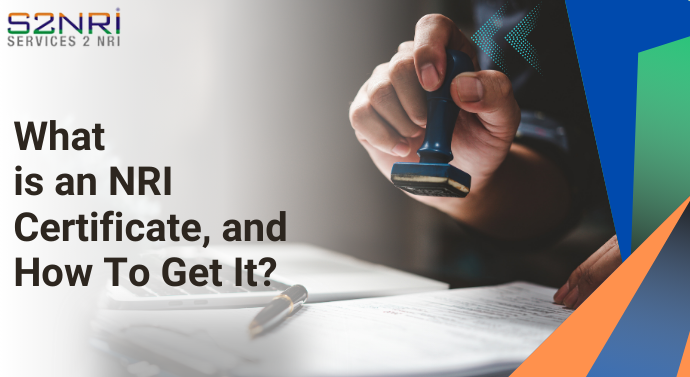An NRI (non-resident of India) certificate is documented proof of an individual who lives overseas or outside India for employment, business, or other purposes. This proof proves that the bearer is an NRI; he or she can use it for various legal, financial, and administrative purposes. For example, NRIs would require it to open NRI bank accounts, file for exemptions in taxes, buy or sell property, or avail themselves of specific government schemes.
Read MoreCategory: NRI NEWS

Aadhaar Card for NRIs: Application Process Explained
The year 2024 opened with a surprising announcement for non-residents of India. The long-awaited request of the Indian diaspora abroad was approved. It was regarding the update in its enrolment rules from the Unique Identification Authority of India (UIDAI).
Read More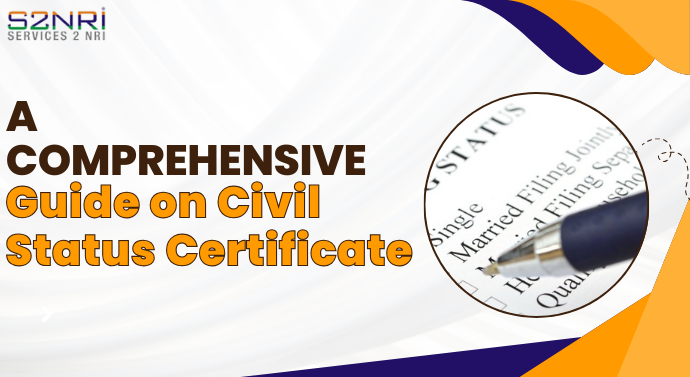
A Comprehensive Guide on Civil Status Certificate
Typically, a civil status certificate is another name of a single status certificate. It is also called the proof of civil status that states the status of the bearer as married, divorced, widowed, or separated. This document serves as a concrete proof of an individual’s marriage, date of birth, address, marriage, and baptism.
Read More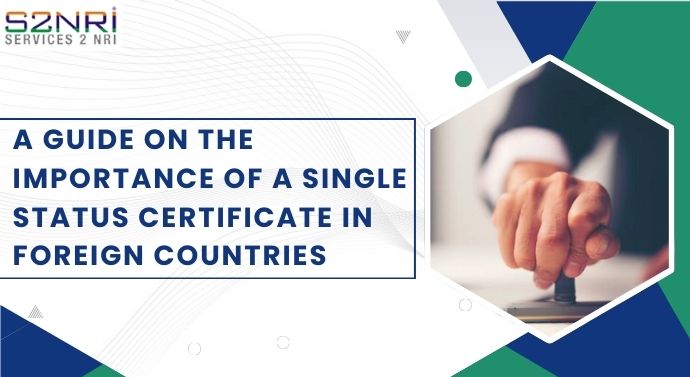
A Guide on the Importance of a Single Status Certificate in Foreign Countries
A single status certificate is an official paper that a concerned authority issues in a country. In India, a notary public is a concerned person who drafts an affidavit. This affidavit states an oath, which includes the name, date of birth, parent’s details, and more that represent the identity of the person. Mainly, it focuses on his or her single status or bachelorhood. The notary public attests it after verifying the authenticity of supporting documents. Ultimately, it proves that the individual is unmarried and legally free to marry.
Read More
Professional Property Management for NRIs in India to Maximise Returns
A property is precious. It requires proper management. But managing property from afar can be a daunting task, especially for non-resident Indians (NRIs). They stay abroad, which is a unique barrier in handling real estate assets in India. With the population of 35.4 million overseas, NRIs (including People of Indian Origins, PIOs, and Overseas Citizens of India, or OCIs) invest in real estate for consistent future returns through its rental income or buying and selling property.
Read More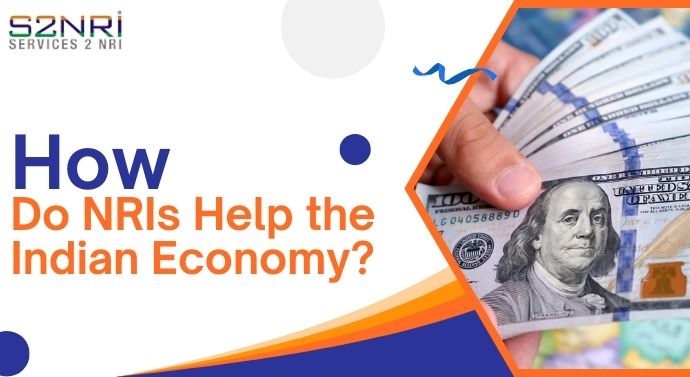
How Do NRIs Help the Indian Economy?
Have you ever wondered how many Indians are migrated? Well, these are not hundreds, but over 29 million Indians are settled abroad. Every year, 2.5 million Indians take a flight to countries like the USA, UAE, Canada, and Malaysia. And as per current records, Europe is the latest hub for the Indian diaspora, where over 2.8 million Indians are employed or settled. The overseas countries might be developed and wealthy. Low population and lack of skilled workforce in countries like New Zealand, Germany, Italy, and the EU attract Indians to actively migrate to these countries.
Read More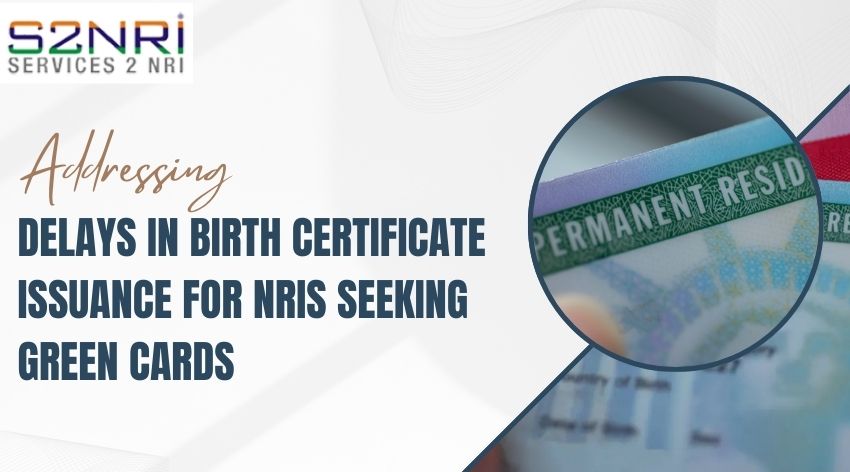
Addressing Delays in Birth Certificate Issuance for NRIs Seeking Green Cards
Non-resident Indians (NRIs) live afar, which often brings a series of challenges. One of the most common hurdles is obtaining their birth certificate. A proof of birth is considered a fundamental identity document, which immigration authority often seeks. This document consists of authentic details regarding the applicant’s age, citizenship, address, and family relationships. That’s why immigration officers ask to present it. Unfortunately, they struggle with delays in getting it from India. This long wait can be frustrating, especially when you’re likely to apply for the green card.
Read More









